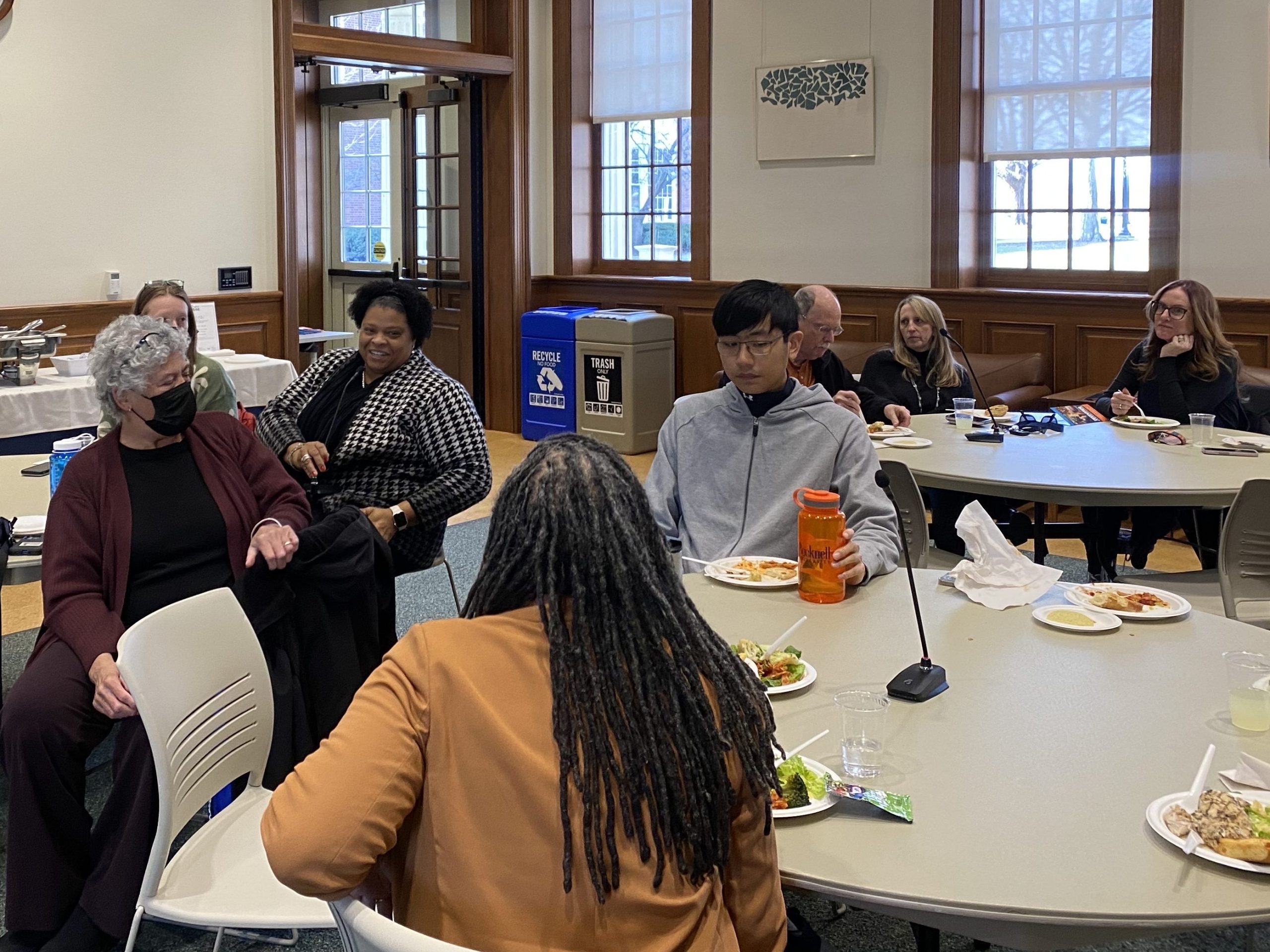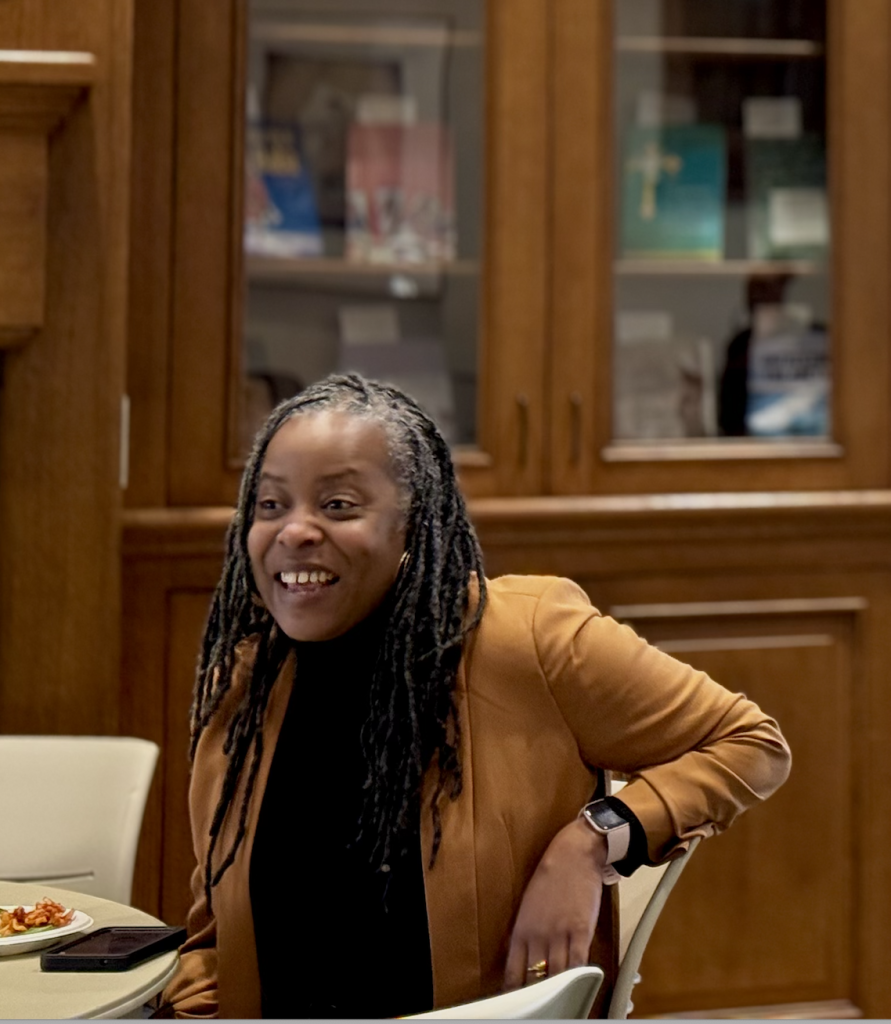The Griot recently hosted guest speaker Dr. Stephanie Jones, an Associate Professor in Education at Grinnell College, researching racial trauma in the education system. As an informal introduction to Jones and her research, the Institute organized a Q&A luncheon aimed at preparing for her presentation titled “Ending Curriculum Violence and Racial Trauma in the Classroom.”
Jones began the lunch by encouraging aspiring educators, speaking from her experience not only as a college professor but also as a K-12 teacher. She emphasized the necessity of a pedagogical revival in the classroom, highlighting the influence that passionate educators dedicated to the intellectual growth and resilience of all students can bring to the education system and society as a whole. Curriculum violence and racial trauma in the classroom affect the learning of all students, and being aware of how to dismantle and avoid these occurrences in the classroom will strengthen the experience and safety of the entire student body.

Some students took the opportunity to speak about their personal experiences with racial violence in the classroom, bringing forth conversation about an interactive Jones created and operates that tracks and documents such occurrences in schools. The message from Jones, not only to those experiencing such incidents but also to those facilitating continued inaction, is clear: “I see you.” The map keeps the community and education officials from amnesty or ignorance about what is happening in our schools, becoming a tool for ensuring students feel safe in their classes. “I wish I didn’t have so much work to do,” Jones said, referring to the thousands of reported data points and reports she has received that are still yet to be mapped.
“Not everything needs to be compartmentalized,” Jones said when asked by a fellow educator about what she believes are the first steps teachers need to be making. She questioned why there are separate classes and jobs focused on diversity and accommodation, arguing that educators in every discipline are responsible for ensuring not only student safety but also for presenting a more accurate picture of the world. From science to literature, the question of what we don’t know or are not shown, the question of who is missing from the story or equation– when does 2+2 not equal 4? These classroom questions will reveal elements of race, class, and culture that permeate every curriculum, which should inspire our own questions about what and how we, as educators or aspiring educators, teach students. Jones recommends a classroom setting that encourages this kind of deconstructive questioning and critical thinking.

“I’m tired of being the canary in the gold mine,” Jones said, calling to action those in the education system who are paid to do so, and educators who can, within their area of expertise, decolonize their curriculum. “Education should be infused with joy,” Jones reminds us, concluding the event. For those interested in Jones’ research, the recording of her talk and Athaliah’s blog interview with her will be posted soon, so be on the lookout for those. I have also linked a very succinct publication she recommends for anyone wanting to learn more about her research: https://www.aaup.org/file/Against_Anticipatory_Obedience.pdf
–Ryleigh Roberts
